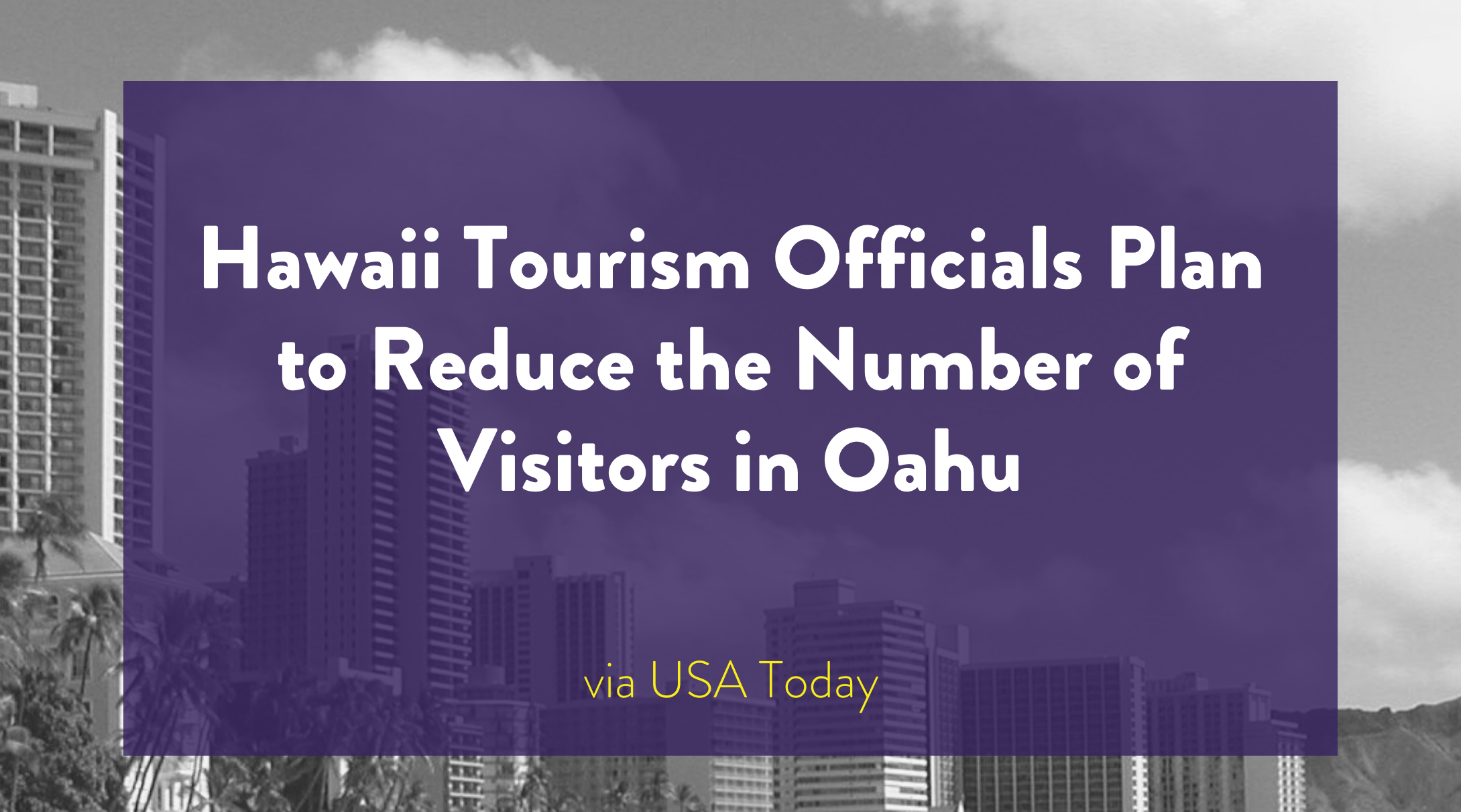September Newsletter: What is Sustainable Tourism?
Happy September, Asheville!
How can we leverage Asheville’s tourism sector to improve the lives of our residents and preserve our place for the future? This fall, a diverse cohort of 30+ community leaders will study this unique challenge in-depth and plan for actionable solutions. Keep reading to learn more about the upcoming kick-off event for this project.
In this newsletter, you'll find a personal note on tourism from our executive director, plus a link to a new survey where you can share your own tourism story. You'll also find a brief video from The Travel Foundation on the "invisible burden" of tourism, as well as news from Oahu, Hawaii, where officials are taking steps to limit and manage visitor traffic.
Thank you for being a supporter of Thrive Asheville's mission. Your perspective on our city matters, so please engage with us on social media and share this newsletter with a friend!
Join Thrive Asheville and the Building Our City Speaker Series on Wednesday, September 22 to learn about global perspectives on sustainable tourism and what's happening in Asheville!
This event features Megan Epler Wood, who is a sustainable tourism thought leader at Harvard and Cornell, as well as a founder of the field of ecotourism. Victoria "Vic" Isley, the president and CEO of Explore Asheville and the Buncombe County Tourism Development Authority, will share the virtual stage. We hope you'll join us as we learn from the experts and formulate new solutions to Asheville's tourism challenges.
Learn more about the speakers and register to join us at the event here.
A Firsthand Look at Tourism: Our Director’s Story
I came to Asheville as a tourist twenty years ago, and I never went home.A visit resulted in a long-distance move when I fell in love with the mountains, the locally-owned businesses, the music and arts, and the sense of community that is rare in this age.
Now as a long-time resident, I experience some of the benefits of living in a premier tourist destination — a fabulous food scene, an eclectic audience for my husband’s band, and ample summer work for my teenagers. I can see the downsides too. When I walk my dog on a Wednesday night, I can point to the dark and (nearly) empty houses that await short-term rental guests, which displace teachers, service-industry workers, and families of all sorts. The shops and stores within walking distance are less diverse as more and more they cater to hungry tourists.
Our home — this destination — is a community asset that we should all have a hand in managing. We have measured the success of tourism in dollars, but we need to know more. How does tourism impact our infrastructure and natural resources? What are the benefits and costs to local culture? If tourism is increasing inequities and hardships for our neighbors, how can we spread the benefits of tourism to more people in our community?
We invite you to join us as we look for answers to these questions! The conversation about tourism has become highly polarized, preventing constructive dialogue, and too often fails to engage people experiencing the negative impacts of tourism. By learning about the impacts and benefits of tourism, we can ensure that more people benefit for a long time into the future.
— Kate Pett, Executive Director of Thrive Asheville
Would you like to share your tourism story with us? Take the survey here.
The Invisible Burden of Tourism
Megan Epler Wood, our speaker this month, is the principal researcher of the 2019 report "Destinations at Risk: The Invisible Burden of Tourism," published in collaboration with the Travel Foundation and Cornell University's Centre for Sustainable Global Enterprise.
The report describes how destinations must uncover and account for tourism’s hidden costs, referred to as the "invisible burden," to protect and manage vital assets. Watch this video for a quick overview.
In 2019, Hawaii broke its all-time tourism record with more than 10 million visitors. As tourists sprawled into local areas, residents began to complain about the overflow.
In response, the Hawaii Tourism Authority has created a three-year plan that aims to manage the number of tourist accommodations on Oahu, seek land use and zoning changes, and review airport policies. The plan also calls for a “regenerative tourism” fee that supports environmental resources.
“We believe that if residents are not happy, visitors will sense that and not have a good experience on the island,” said HTA planning director Caroline Anderson.
Although Oahu and Asheville are very different places, we'll be interested to see what protections Hawaii manages to implement and how similar measures might be adapted to serve a city like ours. Read the full story from USA Today here.








